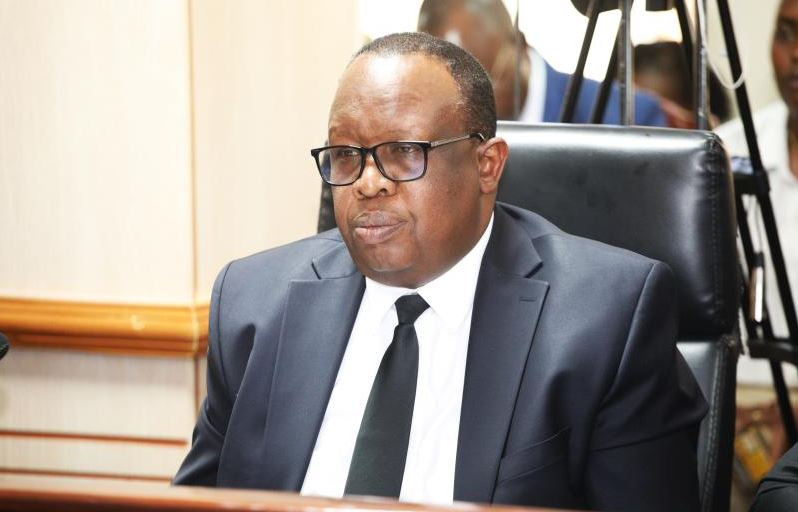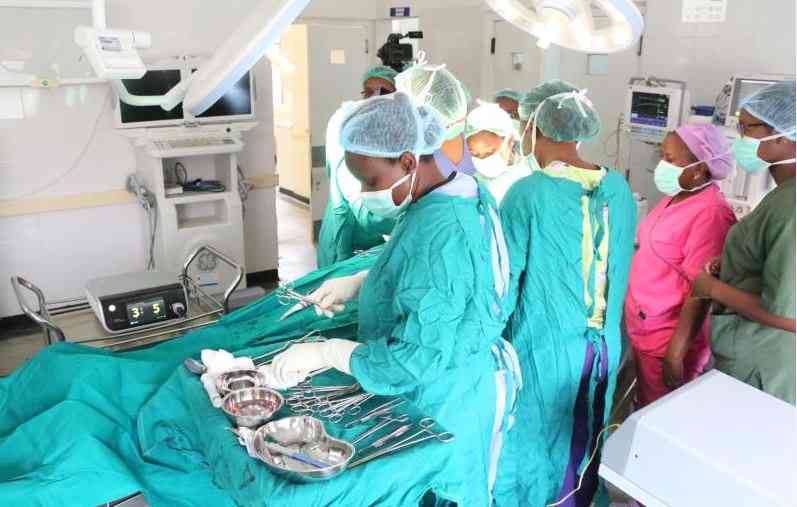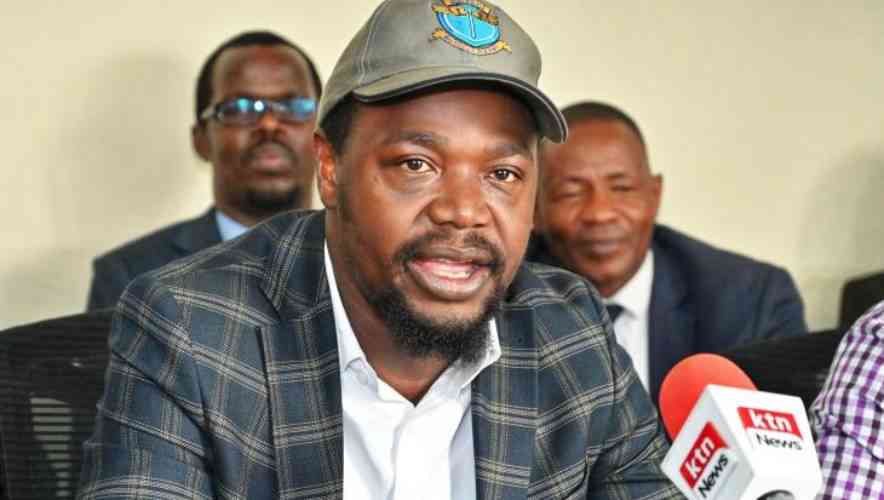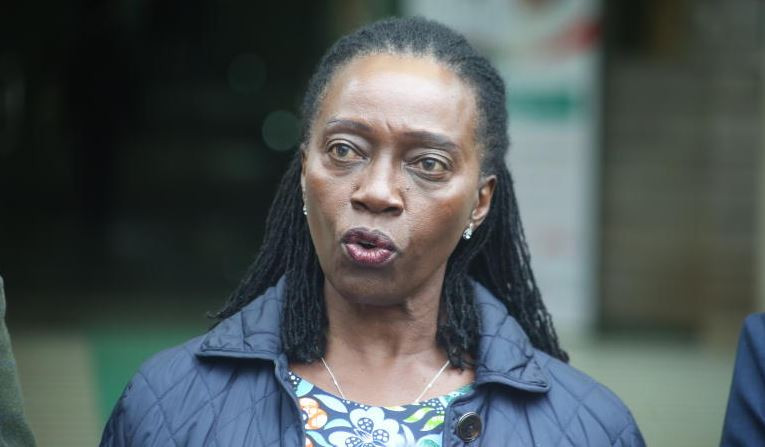
Lizzie Gakure, 39, has battled hormonal imbalance for nearly 20 years. At just 16, she was diagnosed with hyperthyroidism caused by an over active thyroid gland.
Doctors initially prescribed Levothyroxine to help regulate her thyroid hormone levels. However, six years later, in 2008, her condition worsened, prompting a thyroidectomy to remove the gland. She later underwent radiology treatment to eliminate any remaining thyroid cancer cells.
In 2009, she was diagnosed with hypothyroidism, and has since relied on medication to balance her hormone levels. That same year, tests revealed abnormally high estrogen levels, which triggered Dysfunctional Uterine Bleeding (DUB). Further examination confirmed she had edematous pseudodecidualized stroma, a condition marked by tissue changes in the endometrium.
The only available option was surgery to remove the swollen tissues. Fortunately, the operation was successful, allowing her to enjoy life without further complications.
She went on to start a family and pursue her career dream as a sign language interpreter, thriving for 10 years without major health setbacks.
However, in 2021, her health took a turn when she was diagnosed with a recurrent thyroid disorder, which affected her breathing and made voice projection difficult. She went on to start a family and pursue her career dream as a sign language interpreter, thriving for 10 years without major health setbacks.
However, in 2021, her health took a turn when she was diagnosed with a recurrent thyroid disorder, which affected her breathing and made voice projection difficult.
Unfortunately, the nerves controlling her voice box were damaged, and the doctors diagnosed her with laryngeal nerves paralysis.
She was admitted for weeks at Moi Teaching and Referral Hospital in Eldoret, where a tracheostomy tube was inserted into her trachea to help her breathe and speak.
To this day, Lizzie relies on the device, facing daily challenges as she fights to keep infections at bay. Her condition worsened in 2022 when she was diagnosed with acquired subglottic stenosis, a narrowing of the airway just above the vocal cords, likely caused by the prolonged use of the tracheostomy tube.
Lizzie underwent two surgeries in an attempt to ease her pain and remove the tracheostomy tube so she could breath independently. Unfortunately, the procedures were unsuccessful, she struggled to breath without the device and was advised to use it for the rest of her life. After several weeks in hospital, she stabilized and was discharged to continue recovery at home.
For the remainder of 2022, Lizzie focused on healing and adjusting to her new lifestyle. Just as she was finding her footing, another tragedy struck.
In 2023, she suddenly experienced difficulty walking, and lost sensation in bowel movements. She was rushed to hospital for emergency care.
An MRI can of Lizzie’s back revealed bilateral nerve root compression. She was also dignosed with mild spondylosis in both the cervical and lumbar spine, a degeneration of spinal discs and vertebrae causing intense pain due to nerve compression.
Stay informed. Subscribe to our newsletter
The tests further showed cervical and lumbar muscles spasms, involuntary contractions caused by pain and nerve irritation. Doctors confirmed she was suffering from peripheral neuropathy, a condition involving damage of the nerves outside the central nervous system.
Lizzie is now confined to a wheelchair and has been unable to engage in productive activity for the past two years. Despite being diagnosed with Peripheral Neuropathy and Lumbar Gegenerative Disc Disease, Dr Godfrey Wasike, a neurosurgeon based in Eldoret, believes Lizzie’s condition may be more complex than previously thought.
According to him, Peripheral Neuropathy is not a specific diagnosis but rather a broad term encompassing many conditions that involve nerve damage outside the brain. “Peripheral Neuropathy refers to many conditions involving damage to nerve cells outside the brain. What she is presenting might not be nerve related but rather linked to the central nervous system,” he explains.
He notes that Lizzie’s symptoms could point to a lesion compressing the nerves, possibly a neoplasm (growth), a degenerative issue, or even a vascular problem aush as a swollen or poorly functioning blood vessel. There is also the potential, he says, of a more serious underlying condition like Motor Neuron Disease.
“Based on these symptoms, the patient may have experienced trauma affecting the nerves, an inflammatory condition causing nerve injury or even an autoimmune disorder attacking the nervous ssystem,” adds Dr Wasike.
He notes that Lizzie’s spinal MRI findings are not conclusive and may not reflect the true source of her illness.
He strongly recommends a comprehensive review to determine the exact cause of her condition.
Dr Wasike also believes there could be a link between the laryngeal nerve paralysis diagnosed in 2021 and her current mobility challenges. “Peripheral neuropathy alone rarely impairs mobility unless it is extremely severe. I suspect there’s more at play here and would advise further investigation,” he says.
For over two years, Lizzie has sought treatment from a long list of specialists—neurosurgeons, neurologists, endocrinologists, urologists, ENT doctors, physiotherapists, and orthopedic experts. The cost has been overwhelming, especially at a time when she’s been unable to earn an income. On several occasions, she’s had to organize fundraisers to afford her medication and cover her sons’ school expenses.
“It hasn’t been easy being a single mum of two boys in university. My firstborn is at Alupe University studying Medical Laboratory Science, and the younger one is a first-year Computer Science student at Kisii University. It’s very challenging to manage my medication and their fees at the same time,” she shares.
Lizzie admits that her health struggles once pushed her into depression as she tried to adjust to a life filled with pain, limitations, and uncertainty. Despite it all, she has found purpose in using social media to raise awareness about Peripheral Neuropathy, offering advice on how to support those living with it and advocating against the stigma surrounding the condition.
“I still go for neuro clinics, hoping I’ll get better. But sometimes I miss appointments—especially when I don’t have a caregiver. I rely on a wheelchair, so without someone to help me, I can’t access many places,” she says.
Despite the hardships, Lizzie holds onto hope that one day she will walk again. She has yet to seek a second opinion on her condition, trusting that her current doctor fully understands what she is suffering from. However, her case echoes a wider concern in Kenya’s healthcare system.
A 2020 survey by the Kenya Union of Medical Laboratory Officers (KNUMLO) revealed that 3 out of 10 patients in the country receive the wrong diagnosis or treatment—errors that can lead to life-threatening consequences and, in some cases, death due to negligence. The union further noted frequent misdiagnoses, including patients being treated for H. pylori when actually suffering from ulcers, or being wrongly placed on antiretroviral or anti-tuberculosis drugs.
Supporting this concern, a 2018 Kenya Health Service Delivery Indicator study found that four in five healthcare workers—including doctors, clinical officers, and nurses—could not correctly diagnose common illnesses such as pulmonary tuberculosis, adult-onset type 2 diabetes, severe dehydration in children, and pneumonia.
Lizzie’s experience is a sobering reminder of the urgent need for more accurate, timely, and patient-centered diagnoses in Kenya’s healthcare system.
 The Standard Group Plc is a
multi-media organization with investments in media platforms spanning newspaper
print operations, television, radio broadcasting, digital and online services. The
Standard Group is recognized as a leading multi-media house in Kenya with a key
influence in matters of national and international interest.
The Standard Group Plc is a
multi-media organization with investments in media platforms spanning newspaper
print operations, television, radio broadcasting, digital and online services. The
Standard Group is recognized as a leading multi-media house in Kenya with a key
influence in matters of national and international interest.
 The Standard Group Plc is a
multi-media organization with investments in media platforms spanning newspaper
print operations, television, radio broadcasting, digital and online services. The
Standard Group is recognized as a leading multi-media house in Kenya with a key
influence in matters of national and international interest.
The Standard Group Plc is a
multi-media organization with investments in media platforms spanning newspaper
print operations, television, radio broadcasting, digital and online services. The
Standard Group is recognized as a leading multi-media house in Kenya with a key
influence in matters of national and international interest.









